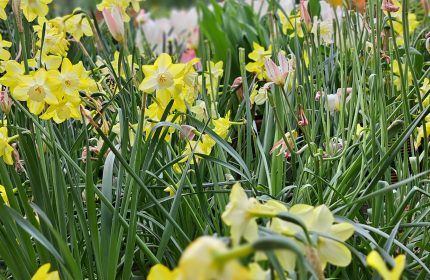Living Positively With Early Onset Dementia
With dementia diagnoses on the rise and over 500,000 people in the UK now living with the condition, finding ways to remain active and to live positively has become more important than ever. When it affects younger people under 65 years of age, it’s referred to as ‘early onset’ or ‘working-age’ dementia.
In an interview with live-in care provider, Elder, Tracey Shorthouse discusses living with early onset dementia and the challenges and opportunities it presents in staying independent and engaged with life.

Tracey Shorthouse
How did you discover that you had early onset dementia?
I was 44 years old, working as a community nurse and began to be unable to write down things on the graphs for patients, which I put down to tiredness at the time.
That year, 2014, I experienced lots of falls, and my speech began to slur in 2015. I was then admitted to the hospital with pins and needles. I thought I had Multiple Sclerosis (MS), the doctors thought I had a brain tumour, and the hospital thought I’d had a stroke.
The MRI and CT showed nothing wrong with my brain. I went back to work and was shown how to use a new peg feeder which I forgot by the end of the week. After a dismissive doctor’s appointment, I saw a locum doctor and asked to be referred to a memory clinic.
I failed the first memory test in June 2015, and failed the second in August. By October I saw the consultant who said he thought that I had Alzheimer’s disease. By the end of the year, I was told that I had Early Onset of Alzheimer’s Disease and a variant of Posterior Cortical Atrophy (PCA).
How did the diagnosis affect you?
I was relieved, to be honest. Finally, someone believed me, and I also felt relieved that I hadn’t got MS! – I knew I wouldn’t cope with that as I am a very active person. After the relief came a period of upset. I went through a grieving process, which is normal – you are, after all, losing part of yourself.
What are the challenges of your dementia and how do you deal with them?
Last year I did a 26km charity walk in Brighton and I had to ask the guard to help me change trains. I like to do things independently as much as I can, but sometimes you have to bite the bullet and ask for help.
Do people realise you have dementia, given your age? How open are you about it?
I lost a lot of friends when I was first diagnosed who thought I was lying or pulling their leg about having dementia. But I’ve made new friends since and met so many lovely people in the past two years, who accept dementia as part of me.
How do you look at the future as your condition progresses?
Every day is a blessing. And I am busy! My occupational therapist says I do too much and should rest more. But you have to grab opportunities with both hands, as they might not come again.
Practically speaking, the main thing at the moment is that my stairs are steep! So I have equipment to help keep me independent. In life, you should definitely do whatever you need to do to keep that.

Tracey’s red-taped stairs
Some of my time now is also taken up with giving talks to those who have recently been diagnosed with dementia. When I do, I always stress that people believe that a diagnosis means they can’t do things. But this is an excuse – because you can.
I recently spoke at the Alzheimer’s Show 2017 as part of the Dementia Engagement and Empowerment Project (DEEP) and I am also involved with the SUNShiners group, which promotes positivity in dementia, YoungDementia UK and The Angela Project.
I have a collection of poems published, called ‘I am Still Me’. The poems aren’t just about dementia though – dementia doesn’t define me, it’s just part of who I am. They also include other things about me like my love of nature and gardening and my cat.
Read the full interview with Tracey on elder.org.

ADVERTORIAL





















